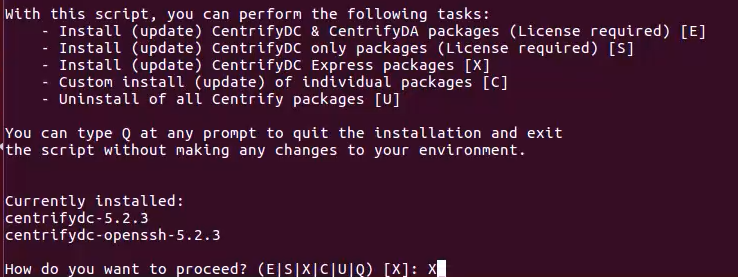Download and install Docker Desktop Edge version 2.3.6.0 or later. 99138c65ebc7 @ latest ├─ ca-certificates @ 20200601deb10u1 │ └─ openssl @ 1.1.1d-0. Now, move into the extracted directory, configure, build, after a successful build, test the libraries and install OpenSSL in the default location, which is /usr/local/ssl, by running the following commands.
OpenSSL is a full-featured software library that contains an open-source implementation of the Transport Layer Security (TLS) and Secure Sockets Layer (SSL) protocols, used for securing information transmitted over computer networks.
It is a general-purpose cryptography library and supports a number of different cryptographic algorithms including AES, Blowfish; MD5, MD4, SHA-1, SHA-2 cryptographic hash functions; RSA, DSA, Diffie–Hellman key exchange, Elliptic curve and many others.
In this article, we will explain how to install the latest stable version of OpenSSL from sources on CentOS and Ubuntu based distributions.
Step 1: Install Development Tools
1. To compile OpenSSL manually from sources, you need to first install few dependencies such as “Development Tools” under RHEL/CentOS/Fedora or “build-essential” in Debian/Ubuntu as shown.
Step 2: Compile OpenSSL from Sources
2. Next, download the latest stable version of OpenSSL (v1.0.2 at the time of writing, which is a Long Term Support (LTS) release, supported until 31st December 2019), from the download page using following wget command and unpack it using tar command.
3. Now, move into the extracted directory, configure, build, after a successful build, test the libraries and install OpenSSL in the default location, which is /usr/local/ssl, by running the following commands.
4. Once you have successfully installed OpenSSL, you can move into the installation directory and view the various sub-directories and files using ls command.
The following are important directories you need to take note of:
- bin – contains the openssl binary and some utility scripts.
- include/openssl – contains the header files needed for building your own programs that use libcrypto or libssl.
- lib – contains the OpenSSL library files.
- lib/engines – contains the OpenSSL dynamically loadable engines.
- man – contains the OpenSSL man-pages.
- share/doc/openssl/html – contains HTML rendition of the man-pages.
- certs – the default location for certificate files.
- private – the default location for private key files.
5. To check the version of OpenSSL you have just installed, run the following command.
6. To use the newly installed OpenSSL version on your system, you need to add the directory /usr/local/ssl/bin/ to your PATH, in the file ~/.bashrc (or the equivalent for your shell).
Add this line at the bottom of the file.
Save and close the file and reload the configuration using the command below.
7. Now open a new terminal window and run the following commands to confirm that the new OpenSSL binary is located in your PATH and that you can run it without typing its full path.
That’s all! In this article, we have explained how to install the latest OpenSSL version from source on Linux systems. If you have any questions, use the command form below to reach us.
EDIT: Got it working!
I got it working by creating my own certificate authority first as outlined here:
And here:
I’d like to be able to give a better answer but I was following the instructions here:
And it wasn’t working for me. Except for the part about signing the client key. That worked
I am attempting to setup a private docker registry, secured by a reverse nginx proxy that validates users by client certificates.
The error I’m getting is:
Docker Install Openssh-server
According to the documentation, you are supposed to be able to add certificates into /etc/docker/certs.d/, and I have done so. Docker appears to see the location of the certificate:
I also tried renaming the cert file from mydomain.org to simply ‘ca.crt’, which the debug log again shows it seeing, but it didn’t have any effect.
I am able to use curl like so:
curl --key client.key --cert client.cert https://docker.squadwars.org/
I can also add the --cacert option to curl, either way works.
The docker documentation says that if you still have problems, you should add the certificate at the OS level. I have done so according to the instructions:
(Which is probably why I don’t need -cacert with curl, although I’m confused because I’ve since removed the certificate but curl still works).
Docker Hub

This is driving me nuts, any help would be greatly appreciated!
Docker Install Ubuntu
Edit: I forgot to add that initially I had the FQDN of the certificate wrong, but it is now ‘docker.squadwars.org’
